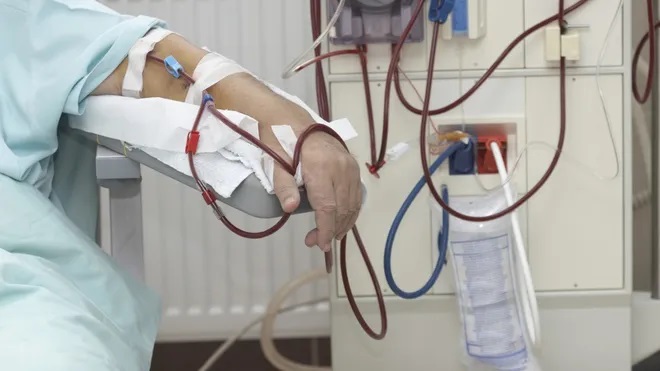
15, Mar 2022
Have you paid attention to your kidneys lately?
These vital organs in your body filter toxins from the blood, regulate your body's fluid levels, help control blood pressure, help produce red blood cells and make vitamin D that keeps bones strong.
Chronic Kidney Disease (CKD) affects almost 40 million American adults. It remains the ninth leading cause of death in the U.S.
Kidney disease is a condition when kidneys lose their ability to remove waste products from our body and maintain fluid balances in our body. It can progress quickly or may take many years to develop.
There are many risk factors for chronic kidney disease.
High-risk populations include a family history of kidney disease, diabetes, high blood pressure, cardiovascular disease.
Diabetes mellitus remains the most common cause of kidney disease, and high blood pressure is the next leading cause.
Dr. Mitra's previous three columns
Heart of the matter: American Heart Month reminds you to take care of your ticker
Silent killer: Cervical cancer kills 14,000 women each year in the U.S. Here's what to know
Holiday health: The holiday season is a busy one; keep up with your help for optimum enjoyment
Most people are unaware of having kidney disease until the later stages, as there are few warning signs.
So, detection by a laboratory test called "creatinine" is critical.
Due to reduced excretion of creatinine in the urine, creatinine will increase in the blood if the kidney function is abnormal.
Your glomerular filtration rate (GFR) is calculated, factoring in the age, gender, ethnicity, and creatinine of an individual.
The GFR indicates the stage of chronic kidney disease, which also measures kidney function.
In many cases, early detection and proper, timely treatment of underlying diseases, such as diabetes and high blood pressure, delay the progression of kidney damage.
An appropriate eating plan with the right amounts of electrolytes, fluid and protein help maintain a good kidney function.
By reducing salt intake, staying hydrated, avoiding smoking, moderating protein consumption and exercising regularly, you're more likely to have healthier kidneys.
End-stage renal disease can be treated with either dialysis or kidney transplant.
Dialysis involves treatment that removes wastes and excess fluid from the blood when the kidneys fail to do it on their own.
Typically, dialysis is necessary when individuals lose about 85-90 percent of their kidney function.
The other treatment option for end-stage renal disease is a kidney transplant.
National Kidney Month, observed in March, brings awareness to keep your kidneys safe and healthy and encourages research in this arena.
People of all ages must take preventative steps to lower their risk of kidney disease.
Anyone with a family history of kidney disease, diabetes mellitus, high blood pressure or cardiovascular disease should be screened for kidney disease.
Be proactive and keep your kidneys healthy to prevent the onset of CKD.
You can protect your kidneys by maintaining normal blood pressure, making healthy food and drink choices, and reducing stress.
Ask your doctor to be screened for chronic kidney disease.
To learn more about how to manage your kidney health and also for your aging loved ones, contact Dr. Sue Mitra, Board Certified in Internal Medicine, at 321-622-6222. You can also visit her at www.suemitra.com and schedule an appointment.
Dr. Sue Mitra and her staff strive to offer their patients the best care, advice and services available in the medical field with the goal to keep patient healthy & happy.

Dr. Sue Mitra is board certified in international medicine. She is seen here with a Cologuard, which is a noninvasive colon cancer screening test. (Photo by: Tim Shortt/Florida Today)